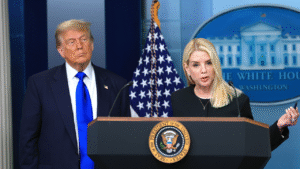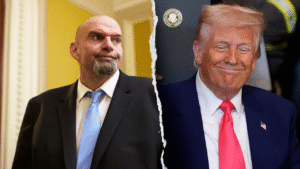NEWYou now have the option to listen to news articles!
Late Friday night, the Senate made progress on a set of spending bills, resolving a partisan deadlock that had the potential to disrupt the government funding process.
Throughout the week, there were challenges in advancing three bills, which included funding for military construction and Veterans’ Affairs, agriculture and the Food and Drug Administration (FDA), and the legislative branch. Lawmakers from both parties attempted to block these bills, but a way forward was eventually found. After several votes on amendments, the final package was approved. It is worth noting that the bill to fund the legislative branch was included separately in response to opposition from Sen. John Kennedy, R-La., who eventually agreed to let the bill proceed.
“I just think we need to set an example, and when we’re increasing our spending 6% and others less,” Kennedy stated on the Senate floor. “We’re sending a message that we’re special, and I don’t think we are.”
Now, the bills move to the House, where Republicans are already displeased with the Senate’s bills exceeding the approved spending levels.
The advancement of these bills marks a success for members of the Senate Appropriations Committee and Republican leadership. They are working to prevent a potential government shutdown amid tensions over the spending bill and President Donald Trump’s $9 billion rescission package. This is also the first time since 2018 that the upper chamber has passed spending bills before September.
“These bills all hold significant importance for each of us,” stated Senate Appropriations Committee Chair Susan Collins, R-Maine.
Senate Minority Leader Chuck Schumer, D-N.Y., had previously warned that the rescissions package proposed by Republicans could have serious consequences for the upcoming efforts to fund the government. With the deadline to fund the government approaching rapidly, neither party wants to be held responsible for disrupting the appropriations process, at least for now.
While passing the spending package out of the Senate is a positive development, lawmakers are still working to confirm a number of President Trump’s nominees. The president has urged Senate Republican leadership to cancel recess in order to approve the more than 150 nominees on the Senate’s calendar, as Democrats continue to impede the process.
Alex Miller is a writer for Fox News Digital covering the U.S. Senate.





